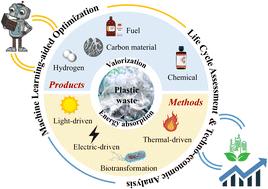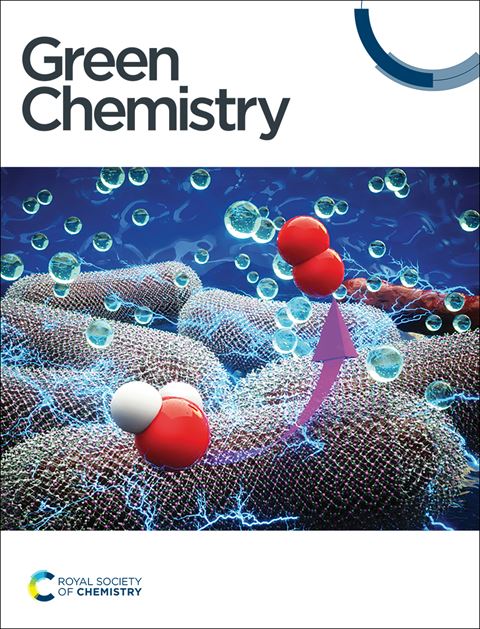Sustainable thermochemical plastic valorization towards a circular economy: a critical review
IF 9.2
1区 化学
Q1 CHEMISTRY, MULTIDISCIPLINARY
引用次数: 0
Abstract
In response to the historic resolution endorsed by the United Nations (UN) to end plastic pollution, completely mitigating ubiquitous plastic pollution would be challenging if substantial advancements are not made towards sustainable plastic management. Therefore, this review aims to provide valuable insights into practical technical routes for plastic pollution mitigation, aligning with the goals of the UN treaty on plastic pollution. This review discusses current technological advancements and proposes innovative solutions for achieving a circular plastic economy. Compared with traditional incineration and mechanical approaches, advanced thermochemical approaches and multifunctional catalytic techniques are the most promising approaches for plastic pollution mitigation owing to their higher economic feasibility and environmental benefits. Machine learning-guided valorizations of plastic waste into value-added products are promising and feasible routes for efficiently optimizing plastic valorization systems and accurately designing high-performance catalysts. Finally, this review offers an outlook and a roadmap on the valorization and innovation of plastic waste for achieving energy and environmental sustainability, which are also beneficial in achieving several UN sustainable development goals, Environmental, Social and Governance, and carbon neutrality.

走向循环经济的可持续热化学塑料增值:一个关键的审查
为了响应联合国(UN)通过的终结塑料污染的历史性决议,如果在可持续塑料管理方面没有取得实质性进展,彻底减轻无处不在的塑料污染将是一项挑战。因此,本次审查旨在为减少塑料污染的实用技术路线提供有价值的见解,与联合国塑料污染条约的目标保持一致。本文讨论了当前的技术进步,并提出了实现循环塑料经济的创新解决方案。与传统的焚烧和机械方法相比,先进的热化学方法和多功能催化技术具有更高的经济可行性和环境效益,是最有前途的塑料污染缓解方法。机器学习引导的塑料废物增值为增值产品是有效优化塑料增值系统和准确设计高性能催化剂的有前途和可行的途径。最后,本文为实现能源和环境可持续性提供了塑料废物的价值和创新的展望和路线图,这也有利于实现几个联合国可持续发展目标,环境,社会和治理以及碳中和。
本文章由计算机程序翻译,如有差异,请以英文原文为准。
求助全文
约1分钟内获得全文
求助全文
来源期刊

Green Chemistry
化学-化学综合
CiteScore
16.10
自引率
7.10%
发文量
677
审稿时长
1.4 months
期刊介绍:
Green Chemistry is a journal that provides a unique forum for the publication of innovative research on the development of alternative green and sustainable technologies. The scope of Green Chemistry is based on the definition proposed by Anastas and Warner (Green Chemistry: Theory and Practice, P T Anastas and J C Warner, Oxford University Press, Oxford, 1998), which defines green chemistry as the utilisation of a set of principles that reduces or eliminates the use or generation of hazardous substances in the design, manufacture and application of chemical products. Green Chemistry aims to reduce the environmental impact of the chemical enterprise by developing a technology base that is inherently non-toxic to living things and the environment. The journal welcomes submissions on all aspects of research relating to this endeavor and publishes original and significant cutting-edge research that is likely to be of wide general appeal. For a work to be published, it must present a significant advance in green chemistry, including a comparison with existing methods and a demonstration of advantages over those methods.
 求助内容:
求助内容: 应助结果提醒方式:
应助结果提醒方式:


